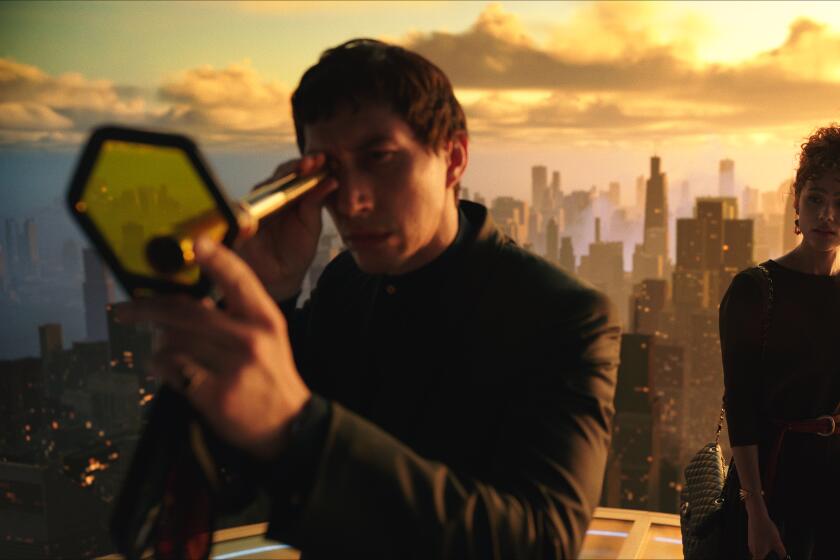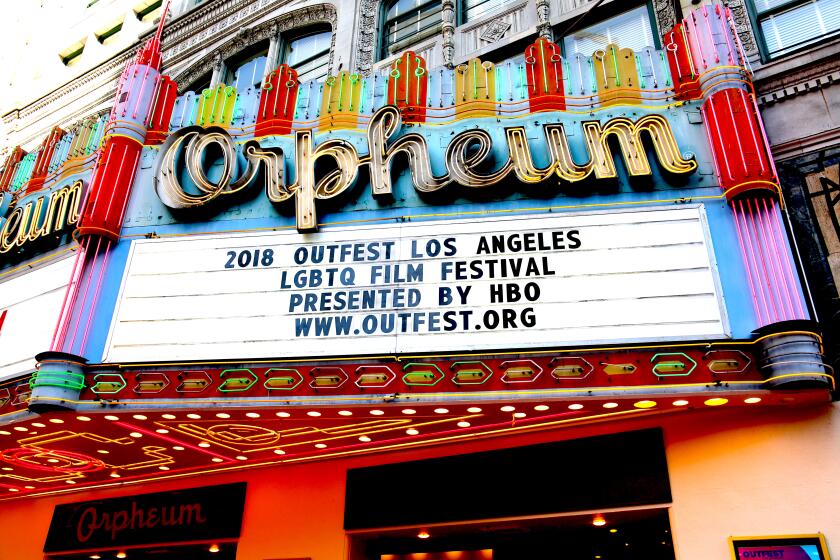At a Cannes Film Festival of big swings and faceplants, real life takes a back seat
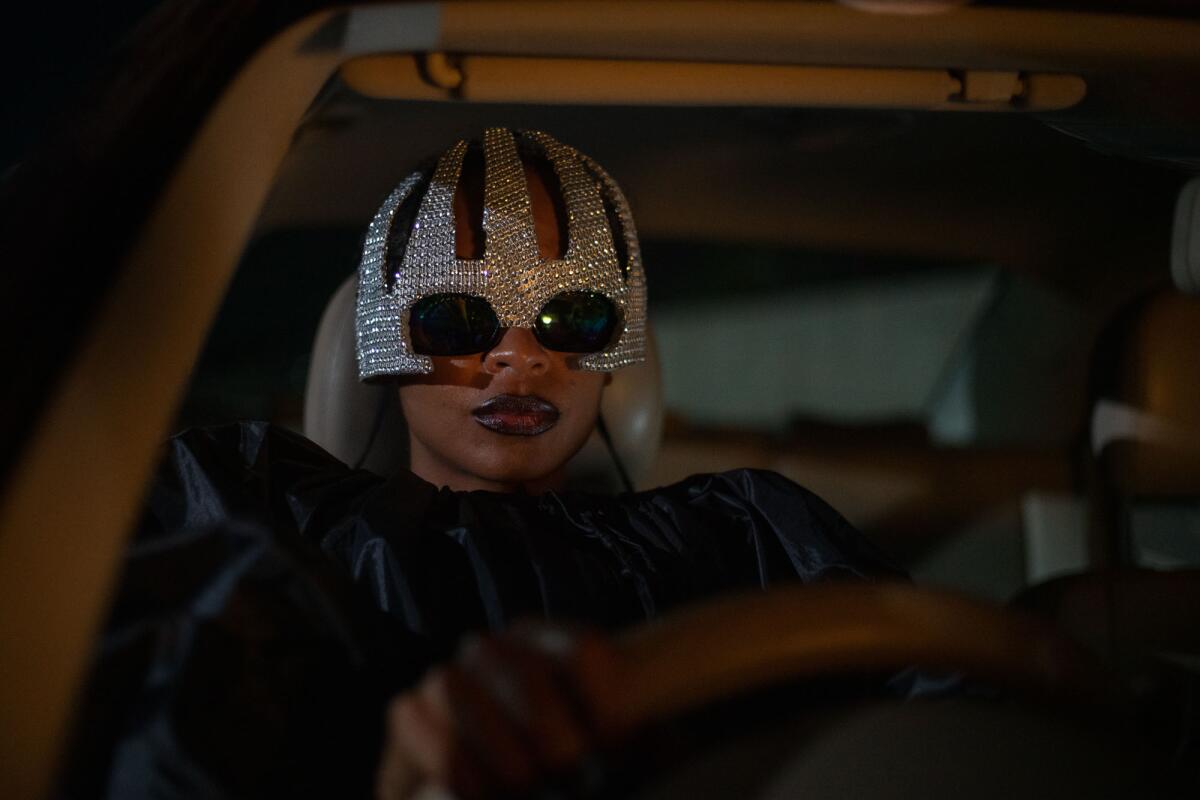
CANNES, France — “Is it too real for ya?” snarls the Gang of Four-soundalike punk band Fontaines D.C. over a thrumming bass line on the soundtrack to “Bird” as we cruise the streets of Gravesend, Kent, east of London. How’s this for too real? Piloting an e-scooter is the shirtless, much-tatted Bug, played by Barry Keoghan, last seen in “Saltburn” wearing significantly less. Hanging onto him is 12-year-old Bailey (Nykiya Adams), his daughter from a previous relationship (something of a stretch, age-wise, but sure).
Ever the optimist, Bug is planning to sell the hallucinogenic slime he skims off the back of a toad he’s imported from Colorado to fund his imminent wedding to a fling of three months. And despite having an elaborate, curling centipede inked on his face and neck, he’s crestfallen that Bailey would let a friend cut off her locks before the big day. She’s entering surly adolescence like a hot comet and not thrilled to have a new stepmother.
It’s all in keeping with the studied miserablism of British director and Cannes darling Andrea Arnold (“American Honey”). Every interior in “Bird” is more squalid than the last; every door seems designed to be busted down by a violent boyfriend.

Is it too real for ya?
Actually, no, not really. And that’s before Arnold introduces us to Bailey’s creepy Boo Radley-ish friend, the mysterious title character (Franz Rogowski of “Passages,” deepening his brand of bug-eyed strangeness), who, in a long-telegraphed moment of protective vengeance, sprouts huge CGI wings that were already painfully suggested.
“Bird” is part of what might be described as Cannes’ reality problem. Or so it seems — it’s only the halfway mark — as we ping-pong between screenings of revered directors leaping off the deep end, their former penchants for verisimilitude tossed aside. Emerging from the raves for George Miller’s “Furiosa: A Mad Max Saga” came the admission, shared by many, that it just wasn’t convincing physically: too lacquered and digitally finessed, the grungy tactility of “The Road Warrior” long gone. Any hope of Francis Ford Coppola reproducing the warmth of his best films was dashed by the sprawling “Megalopolis,” a Rome-as-New-York urban fantasia that, for all its delightful looniness, could have used some subway grit.
Maybe realness is overrated. It’s tempting (but too easy) to impose a coordinated aesthetic on any one edition of a film festival, the early responders hoping to collate their scattered experience of seeing multiple movies a day into a larger sense of coherence. Still, this was restless work. Many of Cannes’ first-week offerings felt like products of the pandemic and, as such, exuded an air of desperation.
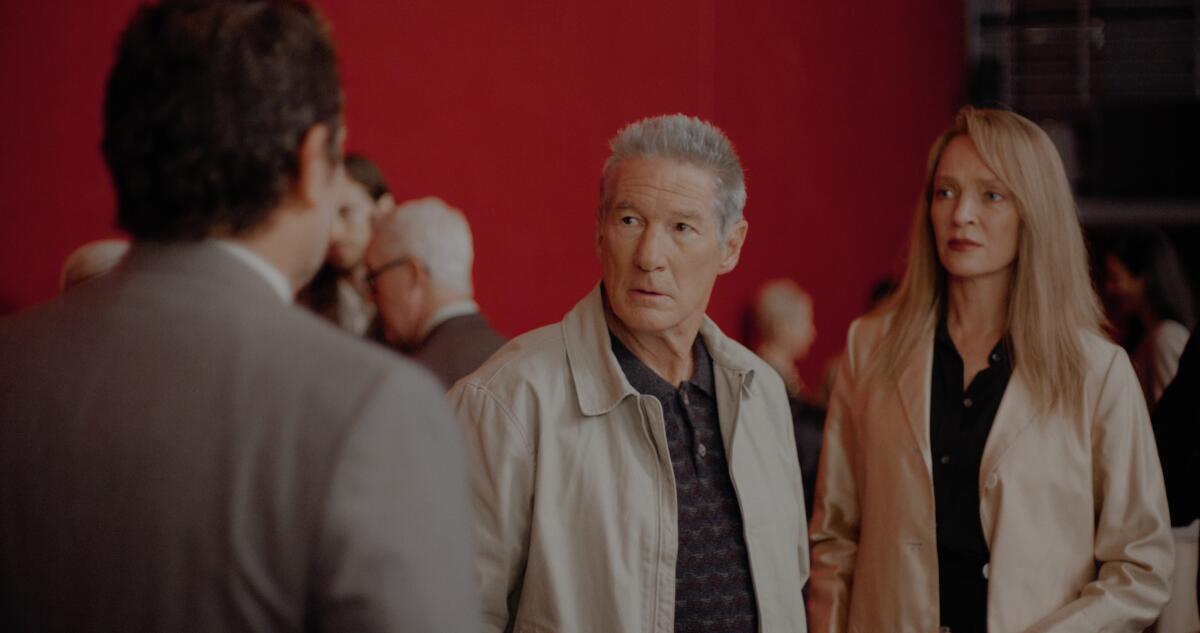
Paul Schrader’s flashback-heavy “Oh, Canada” — sluggish even at 95 minutes — is expressly about notions of reputational realness unraveling. A Hollywood lion in a fascinating winter, the always-watchable Richard Gere plays Leonard Fife, a celebrated Errol Morris-like lefty documentarian, who, though suffering through the final stages of cancer, agrees to a filmed interrogation by some of his most devoted students. Already you anticipate that some of these interviews aren’t going to go Leonard’s way as Schrader’s métier, the language of self-excoriating doubt, finds voice.
Was he a draft dodger who fled to Canada on principle to escape military service? Was he a faithful family man? No points for guessing correctly on those two. Meanwhile, a deeper truth emerges, more about the inexorable march of time than integrity. Gere, reuniting with Schrader for their first collaboration since the exuberant strut of 1980’s “American Gigolo,” is a fragile, vulnerable presence here, playing up Leonard’s thickened voice and dimmed virility. “I have a Genie and a Gemini!” he sputters, clinging to his awards while the rest of his life tips into fabrication.
Please, Yorgos Lanthimos, show us how it’s done: If we’re going to have a Cannes overrun with fantasy, let one come from the maker of “Poor Things” and “The Lobster.” The Greek director has chosen an unfortunate moment to do a faceplant. “Kinds of Kindness,” though it gets its audience pumped with opening credits set to Eurythmics’ snaky, pounding “Sweet Dreams (Are Made of This),” slackens into a tiresome trio of subpar mini-films lacking the emotive weirdness that Lanthimos usually serves on tap.
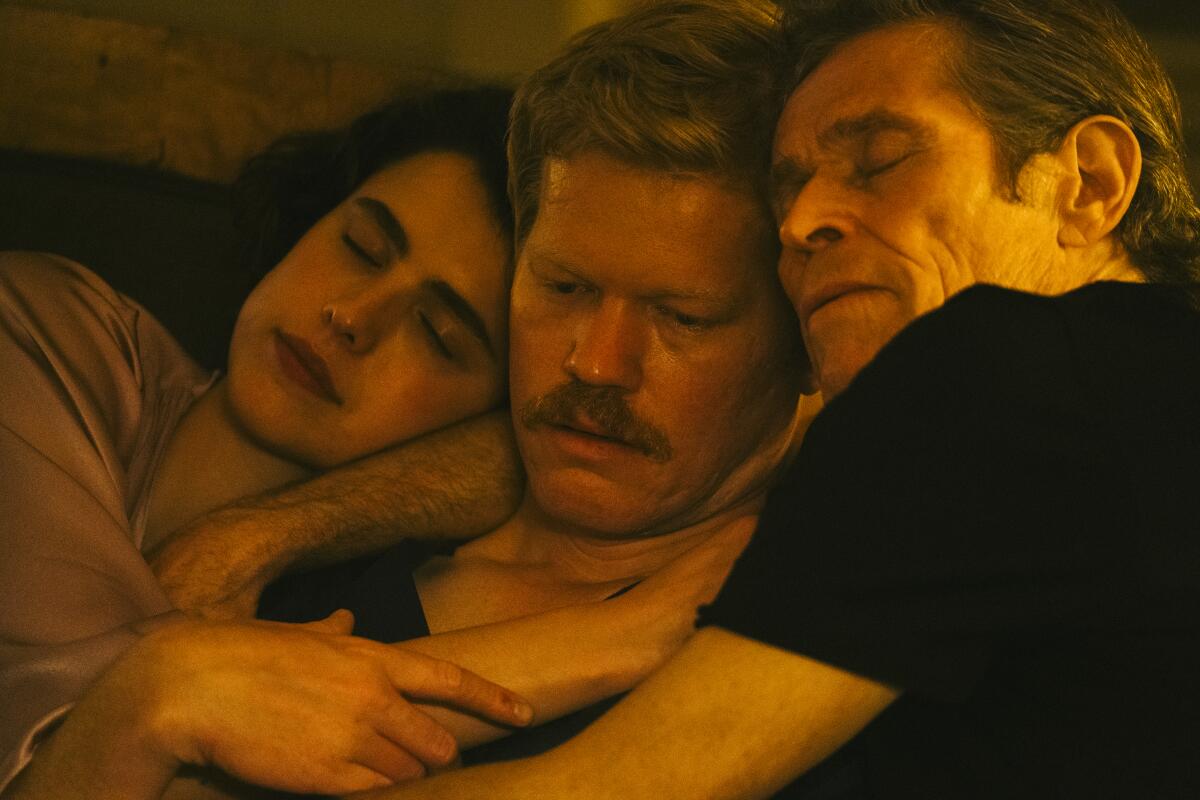
It’s not the actors’ fault, many of whom take on triple duty in three brittle, gruesome tales about, sequentially, murderous micromanagement, cannibalistic survival and obsessive cultdom. The cast launches gamely into the flat-toned violence: Jesse Plemons, Emma Stone, Willem Dafoe, Hong Chau and a particularly committed Margaret Qualley (who hopefully filed for worker’s comp). The weak link, however, is the script by Lanthimos and Efthimis Filippou, who, despite the hope they’d steer back to their darkly suggestive “Dogtooth” days, can’t seem to link their customary meanness to any kind of profundity.
Lanthimos has never made a movie this gratuitously brutal (brace for a fried thumb served on a dinner plate), nor has he made one this dumbly obvious, relying on that ominous, pinging piano note from “Eyes Wide Shut” and a frisky cast to sock it over. He’s clearing his throat. It’s more a collection of memes than a sustained piece of thinking.
Starring Adam Driver, Giancarlo Esposito and an unhinged Aubrey Plaza, the storied director’s latest passion project brings the heat of an event film to Cannes.
One filmmaker, though, has nailed the free-floating dreaminess that Cannes seems to be lost in, the Zambia-born Rungano Nyoni, whose confidence summoning a mood clarifies in the exquisitely haunting “On Becoming a Guinea Fowl.” (Playing in the Un Certain Regard section, her drama runs circles around several others in the official competition.) It begins in the middle of the night — a sequence you’ll never want to end — as Shula (Susan Chardy), driving home from a party, pulls over. There’s a dead body on the road. Turns out it’s her uncle Fred. A garrulous, drunk cousin, Nsansa (Elizabeth Chisela), shows up, lending her some unwanted company.
The movie then eases into the rituals of mourning: mounting a funeral, cooking for the bereaved, grieving performatively, so much of it conducted in a state of shock. Nyoni’s debut, the surreal 2017 comic satire “I Am Not a Witch,” poked a sharp stick in the eye of African mysticism, drafting a solemn girl into unwanted witchery while other women remained tethered to traditional roles. Here, the connection is cooler and more disturbing. As Shula steps into rooms flooded with water, the film pivots to a trance-like menace, echoed by Lucrecia Dalt’s scraping experimental synth score.
We also learn more about guinea fowl than ever imagined, including how the plump species warns the rest of the herd of danger. Shula, lost in her stubbornly vague half-memories, can’t quite shake free of her uncle’s past. And when a final showdown arrives — several women and girls chirping out an animalistic warning — the hair on the back of your neck pricks up.
Suddenly, Cannes was too real after all.
More to Read
Only good movies
Get the Indie Focus newsletter, Mark Olsen's weekly guide to the world of cinema.
You may occasionally receive promotional content from the Los Angeles Times.
